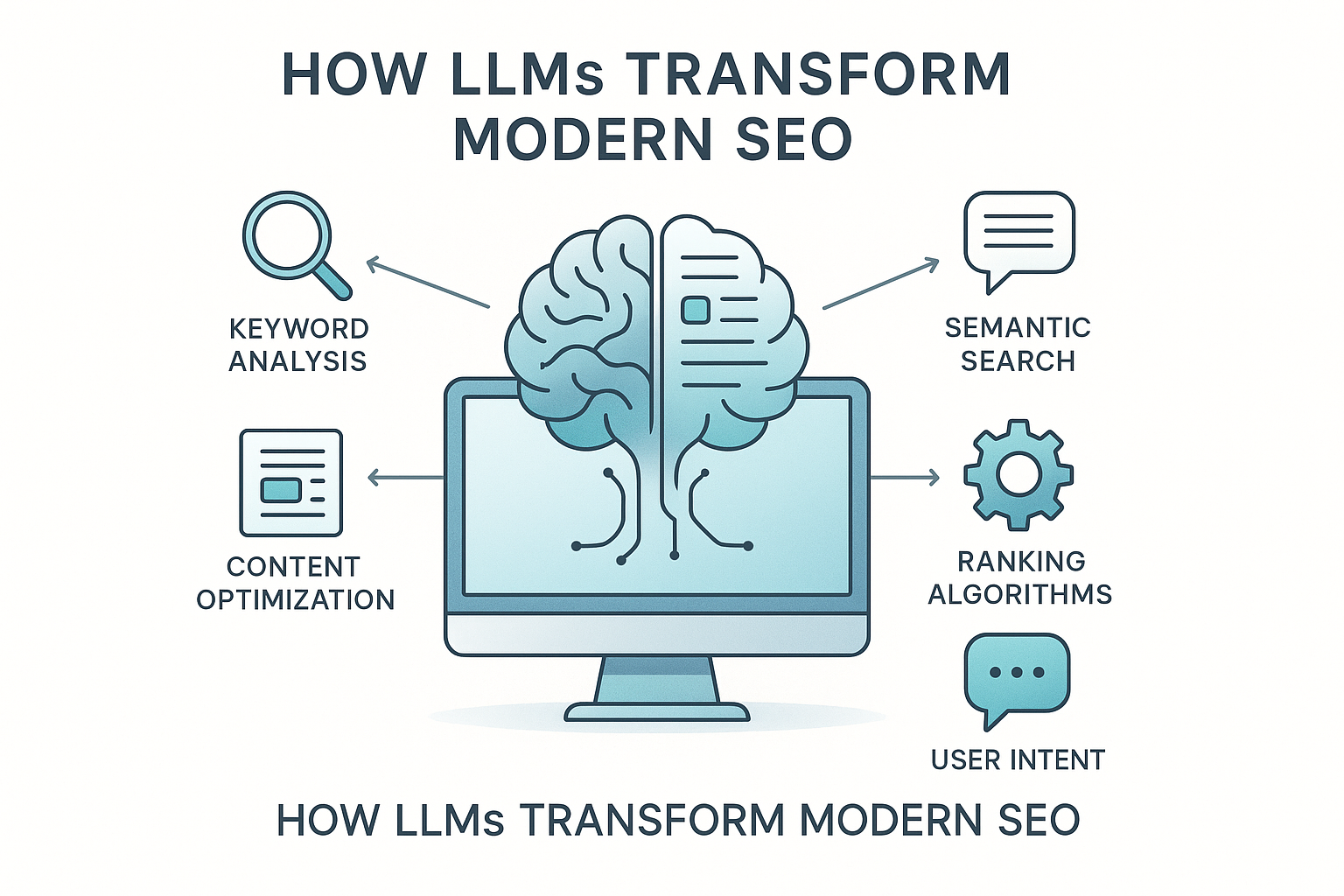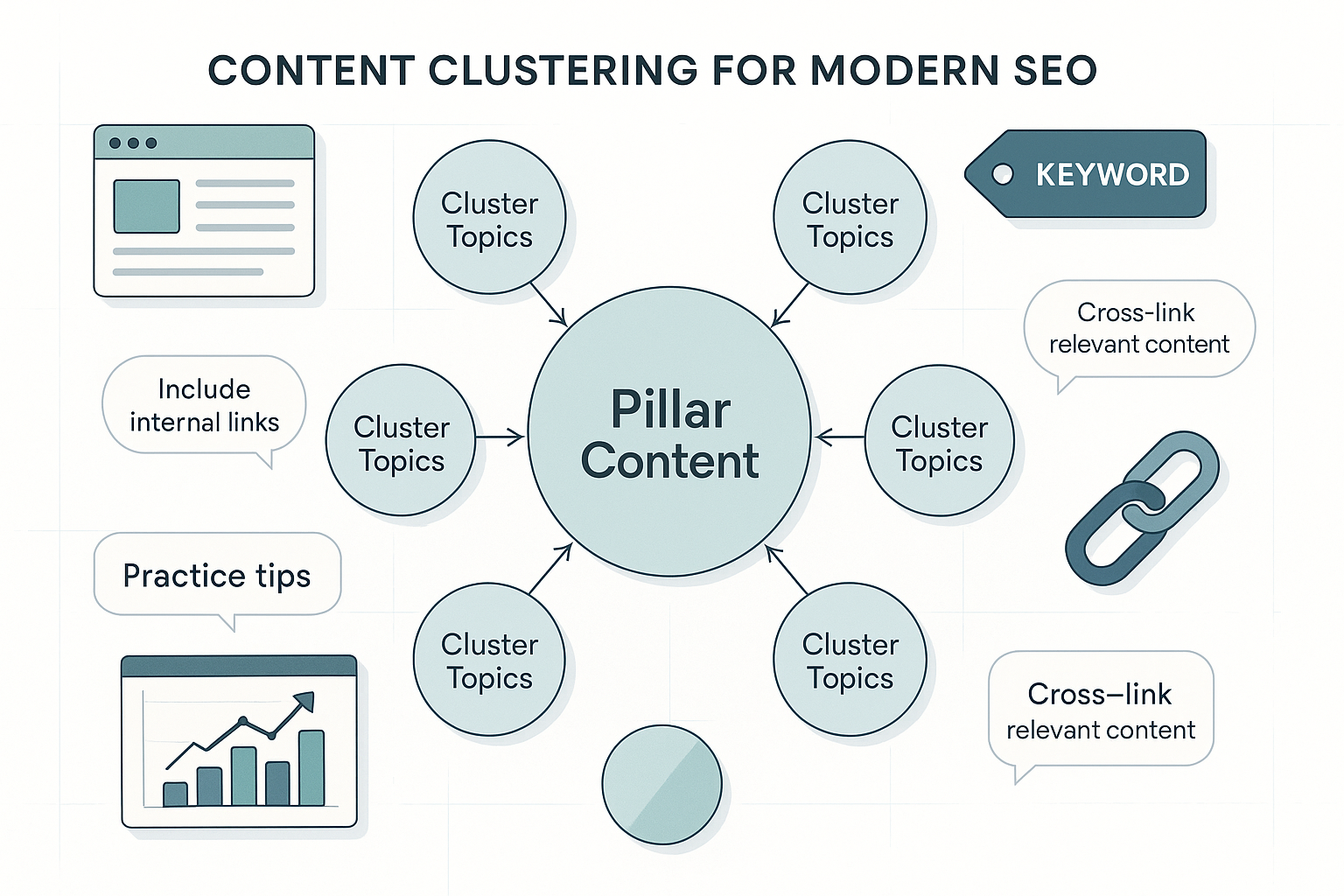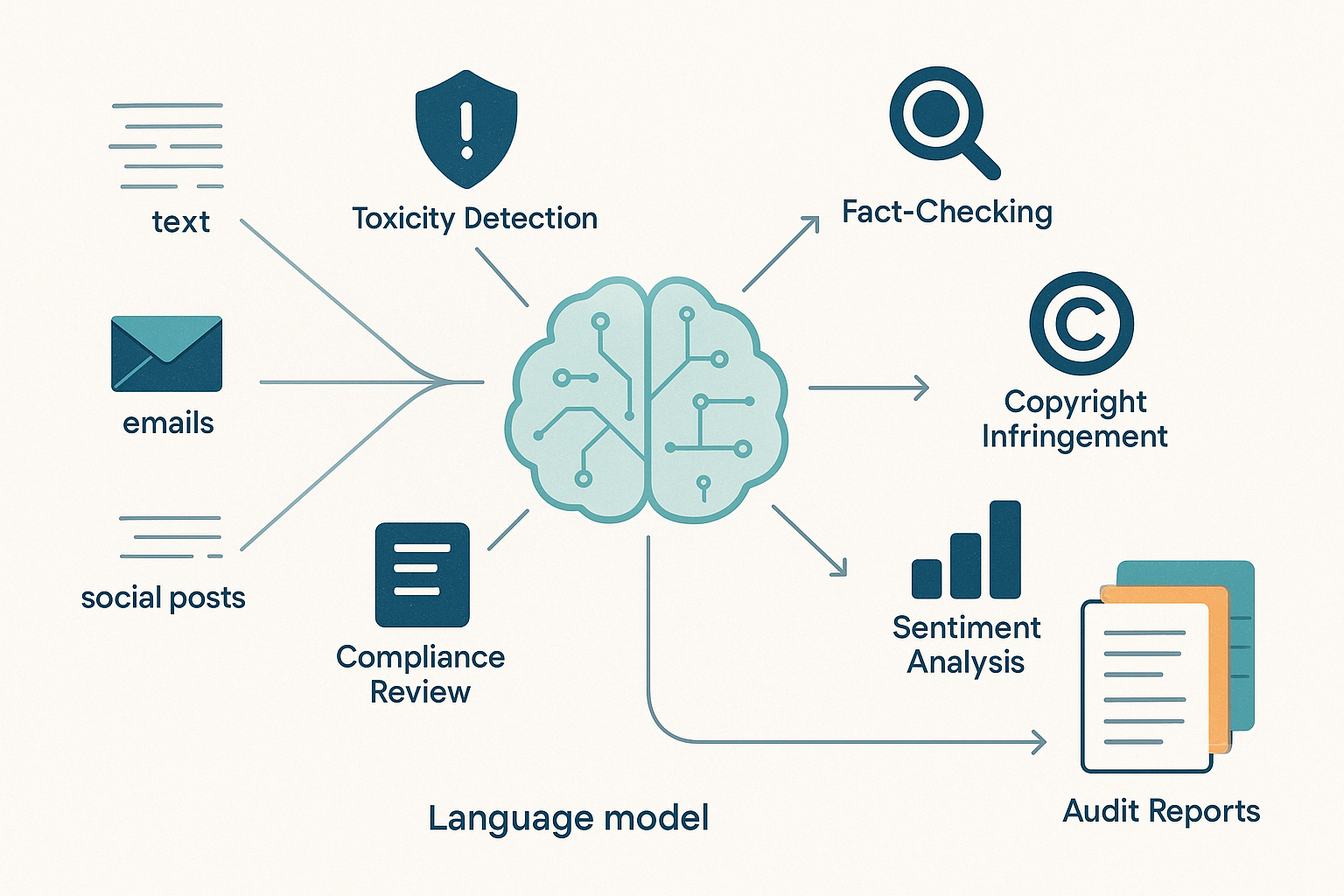Advanced on page SEO made simple.
Powered by POP Rank Engine™
Includes AI Writer
7-day refund guarantee
In the ever-evolving landscape of search engine optimization (SEO), a new player has emerged to shake up traditional methods: Generative AI. As we navigate the complexities of digital marketing, it's crucial to understand how to use generative AI for SEO effectively. This powerful technology is not just a buzzword; it's a game-changer that's reshaping how we approach content creation, user experience, and search engine rankings.
Generative AI harnesses the power of advanced algorithms and models to:
- Create high-quality, relevant content at scale
- Analyze vast amounts of data for actionable insights
- Optimize user experience through personalization
By leveraging AI tools like ChatGPT, Bing Chat, and Claude, SEO professionals can now tackle challenges that once seemed insurmountable. From crafting compelling meta descriptions to predicting emerging trends, generative AI for SEO offers a plethora of applications that can give your digital strategy a significant edge.
As we dive deeper into this guide, we'll explore five proven strategies to use AI in your SEO efforts. Whether you're a seasoned marketer or new to the field, these insights will help you harness the full potential of generative artificial intelligence to boost your online visibility and drive organic growth.
Which is the best LLM for SEO content?
Get the full rankings & analysis from our study of the 10 best LLM for SEO Content Writing in 2026 FREE!

- Get the complete Gsheet report from our study
- Includes ChatGPT, Gemini, DeepSeek, Claude, Perplexity, Llama & more
- Includes ratings for all on-page SEO factors
- See how the LLM you use stacks up
Elevating Content Strategy with AI
In the realm of SEO, content reigns supreme. But how to use generative AI for SEO to elevate your content strategy? Let's dive into the transformative power of AI in content creation and optimization.
Content Creation and Enhancement
Generative AI has revolutionized the way we create and enhance content. By leveraging advanced AI models, we can now produce high-quality, engaging content at scale. Here's how:
- Blog Posts: AI can generate draft articles on various topics, providing a solid foundation for human editors to refine.
- Meta Descriptions: Craft compelling snippets that boost click-through rates in search engine results.
- Title Tags: Generate catchy, SEO-friendly titles that capture user attention and improve rankings.
But it's not just about quantity; content quality is paramount. AI tools can analyze vast amounts of data to identify trending topics and user preferences, enabling predictive content planning. This allows you to stay ahead of the curve and create content that resonates with your audience.
Semantic Analysis and Content Enrichment
Using generative AI for semantic analysis takes your SEO content to the next level. Here's how it works:
- Content Gap Analysis: AI identifies topics your competitors are covering that you're missing.
- Semantic Relevance: Ensures your content covers related concepts and entities, improving topical authority.
- E-E-A-T Optimization: Enhances your content's Expertise, Experience, Authoritativeness, and Trustworthiness by suggesting relevant citations and expert insights.
By using AI for content enrichment, you're not just creating more content; you're creating smarter content that aligns with Google's increasingly sophisticated algorithms.
Remember, while AI is a powerful tool, it's not meant to replace human creativity. The best SEO strategies combine the efficiency of generative artificial intelligence with the nuanced understanding of human experts. This synergy allows you to:
- Tailor content to specific audience segments
- Infuse brand voice and personality
- Ensure factual accuracy and ethical considerations
As we continue to explore how to use generative AI for SEO, keep in mind that the goal is to enhance, not replace, your existing content creation process. By leveraging these AI tools, you can create a content hub that serves as a magnet for organic search traffic and establishes your brand as an industry authority.
Optimizing Technical SEO Elements
When it comes to how to use generative AI for SEO, technical optimization is a game-changer. Let's explore how AI tools can revolutionize your site's architecture and enhance your visibility in search engine results.
Information Architecture and Taxonomy
Generative AI is reshaping how we approach site structure. By analyzing vast amounts of data, AI can help create an intuitive and SEO-friendly architecture:
- Site Structure Optimization: AI algorithms can analyze user behavior and search patterns to suggest the most effective site hierarchy.
- SEO-Friendly Taxonomies: Create categories and tags that align with user intent and search engine algorithms.
Here's a quick comparison of traditional vs. AI-powered taxonomy creation:

By using AI to optimize your site's structure, you're not just improving SEO; you're enhancing the overall user experience, which is crucial for both visitors and search engines like Google.
Schema Markup and SERP Features
Generative AI is a powerful ally in the quest for rich snippets and featured positions. Here's how to leverage it:
- Schema Generation: AI can analyze your content and automatically generate appropriate schema markup, ensuring your pages are eligible for rich results.
- Featured Snippet Optimization: By understanding the structure of featured snippets, AI can help format your content to increase chances of securing these coveted positions.
AI SEO tools can also help you identify opportunities for other SERP features:
- Knowledge panels
- Image carousels
- Video results
Remember, while AI is excellent at generating these technical elements, human oversight is crucial. Always review and refine AI-generated suggestions to ensure they align with your brand voice and marketing goals.
By incorporating generative AI for SEO into your technical optimization process, you're not just keeping up with the competition; you're staying ahead of the curve. These AI-powered methods allow you to efficiently tackle complex technical SEO tasks that would be time-consuming or even impossible with traditional approaches.
As we continue to explore the applications of generative artificial intelligence in SEO, keep in mind that technical optimization is just one piece of the puzzle. The true power lies in combining these technical insights with creative content strategies and user-focused design.
Which is the best LLM for SEO content?
Get the full rankings & analysis from our study of the 10 best LLM for SEO Content Writing in 2026 FREE!

- Get the complete Gsheet report from our study
- Includes ChatGPT, Gemini, DeepSeek, Claude, Perplexity, Llama & more
- Includes ratings for all on-page SEO factors
- See how the LLM you use stacks up
Enhancing Keyword Strategy and User Intent
Understanding how to use generative AI for SEO can revolutionize your keyword strategy and help you better align with user intent. Let's dive into the world of AI-powered keyword research and optimization.
Advanced Keyword Research
Generative AI has transformed the landscape of keyword discovery. Here's how you can leverage AI tools for smarter keyword strategies:
- Trend Prediction: AI analyzes vast amounts of data to forecast upcoming trends, allowing you to create content ahead of the curve.
- Long-tail Keyword Discovery: Uncover niche phrases that your target audience is actually using in their searches.
- Semantic Clustering: Group related keywords to create comprehensive content that covers topics holistically.
Consider this comparison of traditional vs. AI-powered keyword research:

By using AI for keyword research, you're not just finding keywords; you're uncovering valuable insights into user behavior and search patterns.
Voice Search and Localization
As voice-activated devices become ubiquitous, optimizing for voice search is crucial. Here's where generative AI shines:
- Conversational Queries: AI can generate natural language phrases that mirror how people speak, not just how they type.
- Question Optimization: Identify and answer common questions your audience is asking.
- Local SEO Enhancement: Generate location-specific content that resonates with local audiences.
AI-powered localization goes beyond mere translation. It helps you:
- Adapt content for cultural nuances
- Optimize for regional search engines
- Generate location-specific schema markup
Remember, while AI tools are incredibly powerful, they're most effective when combined with human expertise. Use AI to augment your SEO strategies, not replace them entirely.
By incorporating generative artificial intelligence into your keyword strategy and localization efforts, you're setting yourself up for success in an increasingly competitive digital landscape. These AI-powered methods allow you to:
- Create more relevant content
- Improve user experience
- Boost your visibility in both traditional and voice search results
As we continue to explore the applications of GenAI SEO, keep in mind that the goal is to create a seamless blend of technology and human insight. This synergy will help you craft SEO content that not only ranks well but truly resonates with your audience.
Leveraging AI for Data Analysis and Insights
In the world of SEO, data is king. But how to use generative AI for SEO to make sense of the vast amounts of information at our fingertips? Let's explore how AI tools can revolutionize your data analysis and provide actionable insights.
User Behavior and Engagement Analysis
Generative AI is transforming how we understand user behavior on websites. Here's how:
- On-site Behavior Analysis: AI can analyze click patterns, scroll depth, and time on page to identify areas for improvement.
- Heat Map Generation: Visualize user interactions to optimize page layouts and call-to-action placements.
- Conversion Path Analysis: Identify the most effective routes users take to convert.
By using AI to analyze these patterns, you can:
- Improve user experience
- Optimize content placement
- Increase conversion rates
Competitor Analysis and Brand Sentiment
AI-powered tools are not just for analyzing your own site; they're also invaluable for understanding your competitors and your brand's perception:

Using generative AI for brand sentiment analysis allows you to:
- Track mentions across social media and news outlets
- Analyze the tone and context of brand mentions
- Identify emerging trends or issues related to your brand
Remember, while AI provides powerful insights, it's the human touch that turns these insights into effective SEO strategies. Use AI tools to guide your decision-making, but always apply your industry knowledge and creativity to implement changes.
By leveraging generative artificial intelligence for data analysis, you're not just keeping up with the competition; you're staying several steps ahead. These AI-powered methods allow you to make data-driven decisions quickly and efficiently, ensuring your SEO efforts are always on point.
Conclusion
As we've explored how to use generative AI for SEO, it's clear that this technology is reshaping the landscape of search engine optimization. By leveraging AI tools for content creation, technical optimization, keyword strategy, and data analysis, we can achieve unprecedented levels of efficiency and effectiveness in our SEO strategies.
Remember, the key to success lies in:
- Embracing AI as a powerful ally, not a replacement for human creativity
- Continuously adapting to new AI applications in SEO
- Balancing automation with personal touch to maintain brand authenticity
As generative artificial intelligence continues to evolve, stay curious and open to new possibilities. The future of SEO is here, and it's powered by AI.







